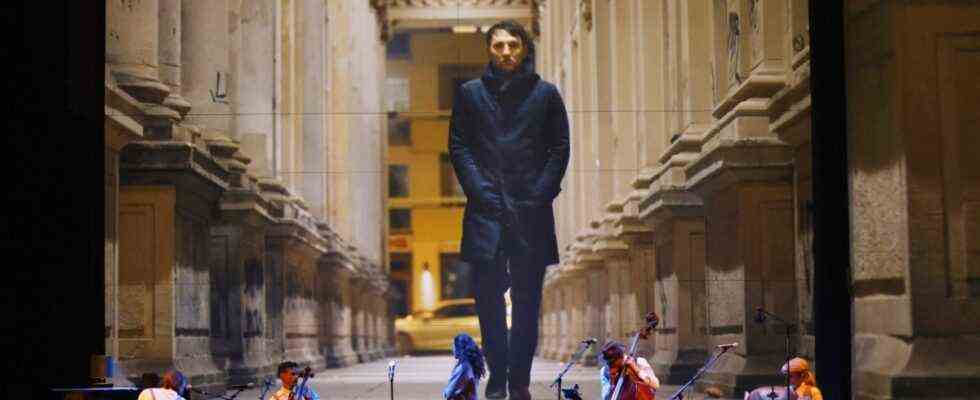Claudia Roth, the new Minister of State for Culture, carried out her first official act a few hours after she was sworn in at the Maxim Gorki Theater in Berlin. You have to understand the theater visit last week as a demonstrative gesture, just as the top federal cultural politician likes: the smallest Berlin state theater, post-migrant, politically combative and in style more professional youth than educated bourgeois representative.
After the theater visit, Roth raved about the performance, a feminist comedy by Sibylle Berg, and let the Gorky director lead her through an exhibition of the theater on the NSU murders – also a statement, if perhaps a bit cheap. On the first day of work, the new Minister of State sets a clear tone and sets herself apart from her predecessor Monika Grütters. In any case, Gorki director Shermin Langhoff thanked Claudia Roth’s appointment as “very good news for those working in culture and the media in Germany.
So: general harmony? Not necessarily. Langhoff urgently needs the benevolent attention of the Minister of State. Criticism of her apparently brutal management style that has become public brought her significant reputational damage. Her former co-director and chief dramaturge Jens Hillje, the pioneering thinker of the Maxim Gorki Theater, recently parted ways with Langhoff and her theater after a long period of hesitation. Hillje, one of the most upright people in the German theater industry, would never speak badly about companions in public, not even about those he has suffered from. But the fact that the subtle intellectual no longer wanted to support Langhoff’s thoroughly power-conscious appearance has clear consequences for the theater. It owes Hillje many of his most important productions, and it owes him the ability to be self-critical, to think in terms of contradictions and not to harden in ideological narrow-mindedness. One has to wait and see how this very special theater continues without him.
At least the new premiere of Hakan Savas Mican’s “Berlin Kleistpark” provides a convincing answer. Mican, a smart, warm-hearted storyteller, is betting on it to “Berlin Oranienplatz” and “Berlin Karl-Marx-Platz” (at the Neuköllner Oper) continued his autobiographical urban exploration. If the first part of the trilogy was a melancholy petty criminal ballad and part two an east-west love story, Mican looks at his own family history. This includes the loneliness of the “suitcase child” who stays with relatives in Turkey while his parents, first-generation migrant workers, earn money in Berlin.
The play shows the life-long echo of the childhood of migrant workers
The evening begins with the ease of a screwball comedy and a marriage fight between the Turkish Berliner Adem (Taner Sahintürk) and his Israeli wife Moria (Sesede Terziyan) – an occasion for lots of typical Gorky jokes with clichés of cultural identity. Because a relationship disaster area is not enough, Adem’s sick mother (Cigdem Teke) comes to visit from Turkey. If Adem is the director’s alter ego, he cannot be accused of portraying himself as overly friendly: Adem treats the old woman harshly to the point of lovelessness. In one of the recorded films in the production, you see the director’s mother standing helplessly in front of all the gold-rimmed teacups, the porcelain service that she bought from Karstadt 40 years ago, an entire room full of plates, teapots, and porcelain bowls, collected for some “later”, which of course never comes, and for the children who of course do not want this gold-adorned porcelain.
The sophistication of the touching staging lies, among other things, in not kitsching up the loneliness of the mother, the strangeness of her son, but rather drawing it precisely, helplessly and soberly and balancing it with dry comedy. The lifelong echoes of the childhood of migrant workers who are overwhelmed and try to find their way abroad become visible. For these experiences of strangeness, to find artistic expression of the torn biographies, to view and capture them in the medium of theatrical performances, is the enormous merit of Shermin Langhoff’s theater. In it you get to know this country a little better and from different perspectives – and that’s more than you can say about many other theaters.

